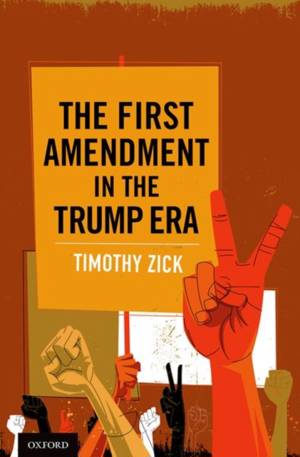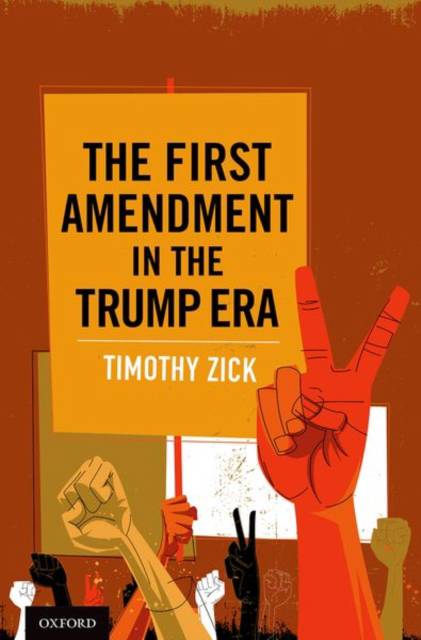
- Retrait gratuit dans votre magasin Club
- 7.000.000 titres dans notre catalogue
- Payer en toute sécurité
- Toujours un magasin près de chez vous
- Retrait gratuit dans votre magasin Club
- 7.000.0000 titres dans notre catalogue
- Payer en toute sécurité
- Toujours un magasin près de chez vous
Description
Regardless of how the presidency of Donald J. Trump ultimately concludes, a significant part of its legacy will relate to the First Amendment. The president has publicly attacked the institutional press and individual reporters, calling them the "enemy of the people." He has proposed that flag burners be jailed and de-naturalized, blocked critics from his Twitter page, communicated hateful and derogatory ideas, and defended the speech of white nationalists. More than any other modern president, Trump has openly challenged fundamental First Amendment norms and principles relating to free speech and free press. These challenges have come at a time when the institutional press faces economic and other pressures that negatively affect their functions and legitimacy, political and other forms of polarization are on the rise, and protesters face diminished space and opportunities for exercising free speech rights. The First Amendment in the Trump Era catalogs and analyzes the various First Amendment conflicts that have occurred during the Trump presidency. It places these conflicts in historical context-as part of our current digitized and polarized era but also as part of a broader narrative concerning attacks on free speech and press. We must understand what is familiar in terms of the First Amendment concerns of the present era, but also what is distinctive about these concerns. The Trump Era has once again reminded us of the need for a free and independent press, the need to protect robust and sometimes caustic criticism of public officials, and the importance of protest and dissent to effective self-government.
Spécifications
Parties prenantes
- Auteur(s) :
- Editeur:
Contenu
- Nombre de pages :
- 192
- Langue:
- Anglais
Caractéristiques
- EAN:
- 9780190073992
- Date de parution :
- 28-10-19
- Format:
- Livre relié
- Format numérique:
- Genaaid
- Dimensions :
- 155 mm x 236 mm
- Poids :
- 439 g

Les avis
Nous publions uniquement les avis qui respectent les conditions requises. Consultez nos conditions pour les avis.






